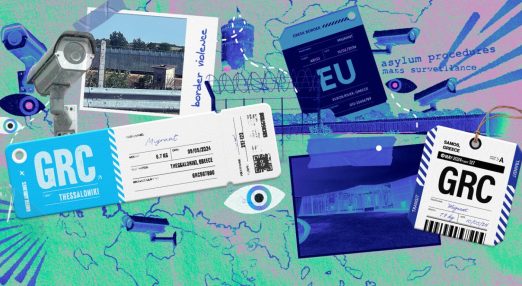EDRi member
Filter by...
-

Ljubljana’s municipal surveillance: Where trust trumps data
During a Ljubljana municipal council debate on CCTV transparency, several concerning points were raised regarding the Slovenian capital's network of over 500 surveillance cameras and the methods employed to assess their effectiveness in preventing crime. The discussion revealed that the entire system relies heavily on trust in the authorities, without any substantial data to support the cameras' effectiveness or a clear rationale for their widespread deployment.
Read more
-

Avoiding regulation of biometric surveillance and loyalty applications: The 20th Big Brother Awards took place in the Czech Republic
For the twentieth time, the Czech organization and EDRi member IuRe (Iuridicum Remedium) awarded prizes to the greatest snoopers.
Read more
-

Panoptykon Foundation challenges the data retention regime in Poland: Telecom companies requested to delete activists’ data
EDRi member Panoptykon Foundation supports activists and attorney-at-law Artur Kula to demand that the four biggest telecom companies in Poland delete data stored for the purpose of law enforcement in the 12 months prior. They want to challenge the current unlawful data retention regime in Poland.
Read more
-

Chaos Computer Club supports hackers facing legal battle with railway manufacturer
Three ethical hackers were targeted by Polish railway manufacturer Newag after exposing anti-competitive practices. EDRi member Chaos Computer Club is backing the researchers to ensure they can continue their vital work without fear of legal retaliation.
Read more
-

Civil Society Demands: European Commission Must Close e-ID Loopholes!
In a coalition of 15 civil society organisations, EDRi member epicenter.works published an open letter demanding that the European Commission close loopholes in the European Digital Identity Wallet. They highlight risks for privacy and transparency in recent eIDAS implementing acts.
Read more
-

Exploring the aftermath of the annulment of Romanian election results – social media platforms, the democratic process, and the role of the DSA
EDRi member ApTI recaps events leading up to and after the annulment of the December 2024 result of the first round of Presidential elections in Romania. Investigations confirm TikTok’s failure to follow European and national electoral law. With the elections set to take place again later this year, ApTI explores the relationship between the discourse on social media platforms, the democratic process and how legislation such as the DSA can act as a safeguard.
Read more
-

Firefox tracks you with “privacy preserving” feature
EDRi member noyb filed a complaint against Mozilla for quietly enabling a supposed “privacy feature” (called Privacy Preserving Attribution) in its Firefox browser. Contrary to its reassuring name, this technology allows Firefox to track user behaviour on websites
Read more
-

Biometric surveillance in the Czech Republic: the Ministry of the Interior is trying to circumvent the Artificial Intelligence Act
EDRi-member Iuridicum Remedium draws attention to the way biometric surveillance at airports should be legalised in the Czech Republic. According to the proposal, virtually anyone could become a person under surveillance. Moreover, surveillance could be extended from airports to other public spaces.
Read more
-

Surveilling Europe’s edges: when digitalisation means dehumanisation
In May 2024, Access Now’s Caterina Rodelli travelled across Greece to meet with local civil society organisations supporting migrant people and monitoring human rights violations, and to see first-hand how and where surveillance technologies are deployed at Europe’s borders. In the first of a three-part blog series reflecting on what she saw, Caterina explains how, all too often, digitalising borders dehumanises the people trying to cross them.
Read more
-

Policing by design: the latest EU surveillance plan
The EU should reintroduce mass telecommunications surveillance and create backdoors to encrypted data, a new plan drafted in secret by police and security officials says. To do so, close coordination between the state and industry would be required, to ensure what the plan calls “lawful access by design.” The plan repeats demands made many times over the years by officials, and may find a warm reception from the incoming European Commission.
Read more
-

New report unravels AI narratives in sci-fi cinema and TV
Students of the SWPS University’s Institute of Humanities in Warsaw, Poland, published their research on “Visions of AI in Popular Culture: Analysis of the Narratives about Artificial Intelligence in Science Fiction Films and Series”. The report delves into the central themes and recurring motifs through which technology becomes ingrained and socialised in cinematic fiction.
Read more
-

The new EU Commission must address information power
Ahead of the European Parliament elections, ARTICLE 19 shares its recommendations for the new European Commission, urging it to strive for a more open information environment across the EU.
Read more
